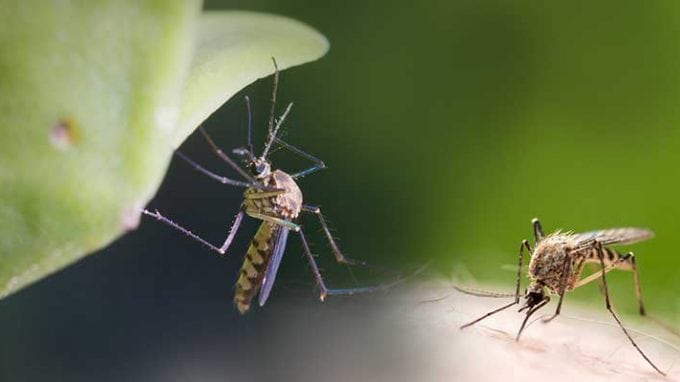According to research, becoming infected with the Zika virus can make men sterile. This was shown in a recent study. Until now, science focused on the effects of the virus on fetal development since an infection with Zika during pregnancy can cause abnormalities in the fetal skull and brain. The nervous system disorder Guillain-Barré syndrome as well as damage to neural stem cells are also linked to Zika virus infection.
What Is the Zika Virus?
In most cases, the virus is transmitted through mosquitoes, particularly the yellow fever mosquito (Aedes aegypti), which is found in tropical and subtropical regions. However, transmission can also take place through sexual contact or blood transfusions. So far, the virus has been found in saliva, semen, vaginal fluid, urine, blood and breastmilk. Typical symptoms include headache, joint and muscle pain as well as rash, fever and conjunctivitis. To date, there are neither medications nor a vaccine to prevent contagion. Alarmingly, the virus has been spreading in Central and South America since 2015.
Destroyed Testes and Lower Sperm Count
In order to determine the consequences of the virus on the testes, sperm health and the production of testosterone, scientists working with Michael Diamond from the Washington University School of Medicine infected male mice with the Zika virus. After just one week, the virus could be found in the testes, where there were signs of inflammation. After two weeks, the first signs of damage to the testicular cells could be determined, and the testes began to shrink. After three weeks, the testes were only one tenth of their original size. The Zika virus had caused a complete destruction of the internal structure. The mice were monitored for up to six weeks. During this time, the testes did not recover – even after the virus had been completely removed from the rodents’ blood. The fertility of the mice also declined. The number of motile sperm was reduced tenfold, and the decrease in testosterone levels was equally drastic. When the researchers bred healthy mouse females with both healthy and infected males, the mice that bred with infected males were four times less likely to become pregnant. Even if there is no 100% certainty, the scientists assume that the damage caused by the virus is permanent. According to the researchers, there is hardly another virus that can cause such serious infertility symptoms since very few microbes are able to pass the barrier between the bloodstream and the testes and attack the testes directly.
What Does This Mean for Humans?
The researchers believe that the Zika virus could also have a detrimental effect on male fertility. Although they assume that the consequences for humans aren’t quite as drastic as for the tested rodents, male fertility could be significantly affected by the virus: The result could be a low testosterone level and reduced sperm count. But the scientists point out that it’s difficult to predict what the exact consequences will be since men often don’t realize that they suffer from infertility until years later – usually, when they aren’t able to have children. However, low testosterone levels could be an important indicator of a Zika infection. According to the scientists, it’s important that the consequences for infected men be thoroughly investigated. The Centers for Disease Control also recommends that men traveling to regions where there is a high risk of contagion use a condom for six months regardless of whether they have symptoms of infection.




